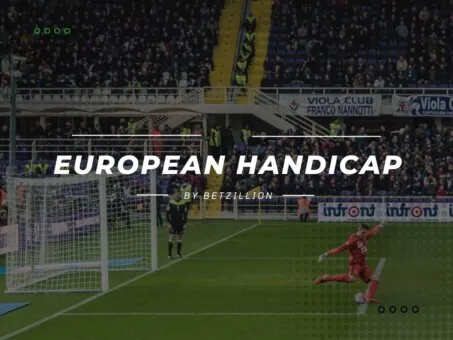Futures Betting

The number of sports betting options available to bettors is almost limitless. But one very interesting option that stands out among the rest is futures betting. It’s the kind of bet you can place, then relax and watch it play out over weeks, months, or even a year.
In this comprehensive guide, I explain how this betting option works, its pros and cons, popular future betting markets and types, and more. Let’s dive right in!
What Is Futures Betting?
As the name implies, a futures bet is a kind of wager you place on an event that will conclude later in the distant future. Let me explain this with a relatable example.
The beauty of betting futures is that it’s a long game, and excitement builds with every game that contributes to the outcome of your bet.
How Futures Betting Works
Before the start of a season or a tournament, sportsbooks set their futures odds on different events. It could be the winner of the tournament, the highest goal scorer, the MVP, and so on.
They come up with these futures betting odds after carefully considering each team or player’s quality, stats, records, and whatnot. As the season or tournament progresses, they then adjust these odds based on the ongoing performance of teams and players, game results, betting volume, injuries, etc. However, once you place your bet, your odds are locked in. This means even if the odds shift dramatically as the season progresses, your potential payout remains tied to the original odds at which you placed your wager.
As a bettor, you can decide to place your futures bet before the season or tournament begins or at any point during the competition. However, at some point, as the season draws to a close, the futures wagers may no longer be available. This is because the outcome becomes more predictable, and sportsbooks stop offering them to manage risk.
How to Read Futures Odds
Sportsbooks, bet exchanges, and other betting services usually release futures odds in a list format. Each event is outlined with various options, such as teams or players, ranked from the most likely outcome to the least likely based on their calculated implied probabilities. The term “implied probability” simply means the likelihood that oddsmakers think an outcome has of happening.
On the other hand, underdog teams like Ipswich, with a lower implied probability of winning, would be listed further down with bigger odds.
Payouts for Futures Bets
As you probably know, your potential payout in sports betting comes down to two things: your stake and the odds you’re betting on. The bigger your stake or the odds, the bigger your potential payout. On the other hand, a smaller stake or lower odds means a smaller potential payout.
For example, let’s say you place a $100 futures sports bets on LeBron to win MVP at the end of the NBA season with odds of 4.0. If he wins, your total return would be $400 ($100 × 4), giving you a net payout of $300 after subtracting your $100 stake. Note that even though the MVP might be unofficially decided earlier, you’ll still have to wait until the official announcement at the end of the season to withdraw your winnings.
Live Betting Futures
As mentioned earlier, the odds for futures bets aren’t fixed, they change as the season or competition unfolds. Sportsbooks constantly adjust these odds based on factors like team or player performance, stats, injuries, and other developments that affect the likelihood of an outcome happening.
Here’s an example of how futures odds work as the season or competition progresses. Let’s say Manchester City’s odds to win the EPL were 1.50 before the season started. If halfway through the season, they’re sitting in fifth place, those odds might shift to 6.00. On the other hand, if they’re at the top of the table, the odds could drop to something like 1.07.
Futures Betting Markets
The futures wager option used to be restricted to just the tournament winner and a couple of other options. Now, there’s a wide variety of future bet markets to explore.
Let’s consider some popular sports and the best futures bets you‘ll find wagering on them.
American Football
Some common future bets in American football include:
- Super Bowl winner: Predicting the Super Bowl winner.
- Conference and division winners: Betting on the conference winners and the teams that finish first in their division.
- MVP (Most Valuable Player): Betting on the MVP for the season.
- Rookie of the year: A wager on the top-performing first-year player in the league.
- Win Totals (Over/Under): Betting on whether a team will win more or fewer games than a set number during the regular season.
Basketball
Popular futures sports betting for basketball include:
- NBA championship winner
- Conference and division winners
- Regular season win totals
- Regular Season MVP
- Rookie of the Year
Hockey
Popular futures bets for hockey include:
- Stanley Cup winner: Betting on which team will win the Stanley Cup.
- Conference or division winners: Betting on which team will win the conference (Eastern or Western) or division.
- Regular season points totals: Betting on whether a team will earn more or fewer points than a set number during the regular season.
- Hart Memorial Trophy (MVP): Predicting the player who will be named the league’s Most Valuable Player.
- Art Ross Trophy (Most Points Score): Predicting the player who will finish with the most points (goals + assists), etc.
Baseball
Common baseball futures bets include:
- World Series winner: Betting on which team will win the MLB World Series.
- American League (AL) or National League (NL) Winner: Betting on the team that will win either the AL or NL Championship.
- Most strikeouts (Pitcher): Betting on the pitcher expected to record the most strikeouts in the season.
- Home run leader: Betting on the player expected to hit the most home runs during the season.
Soccer
Some of the best sports futures bets in soccer include:
- League champions: Betting on which team will win the league title (e.g., Premier League, La Liga, Serie A).
- Tournament winner: Betting on which team will win a cup competition like the UCL, World Cup, Euros, Copa America, FA Cup, Copa del Rey, etc.
- Top scorer (Golden Boot): Betting on the player expected to score the most goals in a league or tournament.
- Balond’ or winner: Betting on the player expected to win the world’s best player award.
- Relegation: Betting on which teams will be relegated at the end of the season.
Horse Racing
Popular horse racing futures bets include:
- Event winner: Betting on which horse will win a major race like the Kentucky Derby, Preakness Stakes, Belmont Stakes, or the Grand National.
- Jockey championship: Betting on which jockey will win the most races in a season or a specific racing meet.
- Horse of the Year: Betting on the horse expected to be named Horse of the Year based on overall performance.
- Triple Crown Winner crown winner: A bet on a horse to win all three Triple Crown races (Kentucky Derby, Preakness Stakes, Belmont Stakes) in a single season.
- Breeders’ Cup winner: A bet on which horse will win a specific Breeders’ Cup race (e.g., Breeders’ Cup Classic).
Types of Futures Bets
If you consider all the different examples outlined in this futures explained guide, you’ll notice that some of these wagers are placed on a whole team and some on a single player. Let’s talk about these different types of futures bets:
Team Futures Betting
With team futures, you’re simply betting on team outcomes like championships and league titles. Since these wagers depend on the performance and achievements of the entire team, you need to analyze the team as a whole when placing your wager.
Player Futures Betting
With player futures, you’re betting on the individual performance of a specific player rather than an entire team. These bets often focus on outcomes like who will be the league’s top scorer, win the MVP award, etc. When making these bets, you must consider factors like the player’s form, injury history, consistency, role within the team, etc. You also have to consider the team dynamics, as it will also influence the player’s performance.
Futures Parlay Betting
A parlay is a combination of multiple bets in a single wager. Therefore, parlay futures bets are simply the combination of multiple futures bets into one wager. For example, you can bet on the EPL winner, Super Bowl winner, and NBA Championship winner in one parlay.
Combining selections like this will yield higher odds than when betting on only a single selection. This automatically means a higher potential payout. However, it also means higher risk because all three selections must be correct to win the bet. If even only one ends up wrong, the bet is considered a loss.
Where Can I Make Futures Bets?
Most top sportsbooks offer the option for futures bets. bet365, BetMGM, Fanduel, Betfred, BetVictor, Unibet, and DraftKings are a few examples of reliable platforms you can check out. For horse racing futures, you might want to consider some of the best horse racing bookies like QuinnBet, Unibet, Betfred, BetVictor, and William Hill.
Pros & Cons of Futures Bets
Below are the advantages and drawbacks of betting futures:
| PROS | CONS |
|---|---|
|
PROS
|
CONS
|
Hedging Futures Bets
Bettors usually employ different strategies to limit their risk while betting futures. One of the most popular of these strategies is hedging, which involves betting on the opposite side of your original bet.
Let’s say you place a futures bet on Man City to win the EPL. Towards the end of the season, City is narrowly leading by 1 point, and it’s looking like the second-placed team, let’s say, Liverpool might end up eventually winning.
To use the hedging strategy in this scenario, you can bet on Liverpool to secure some profit if City eventually falters in the race. If Manchester City wins, your original bet pays off. If Liverpool wins, the hedge bet reduces the loss from the original bet.
Should You Use Futures Betting?
If you’ve made it through this futures betting guide, you likely have a solid grasp of what the wagering option entails. However, deciding whether to use futures or not still depends largely on your understanding and patience.
If you’re a bettor who doesn’t mind waiting for an outcome over an extended period, futures betting could be a great fit for you. However, if you prefer quick results, you should stick to regular short-term wagers.
That said, understanding the sport you’re betting on is crucial. Whether you’re placing a futures bet or exploring other betting options, wagering on a team or sport you know little about is a recipe for disappointment.
If you’re new to sports betting, take the time to learn the basics. Get familiar with the sport you’re interested in and understand how betting works. Also, consider using valuable online resources to aid your decision-making and become a better sports bettor. For instance, you can master betting with BetZillion, a sports betting-focused platform that provides expert tips, compares odds, and offers strategies that can help bettors make smarter bets.
Related articles
Points Betting
FIP in Baseball Betting






